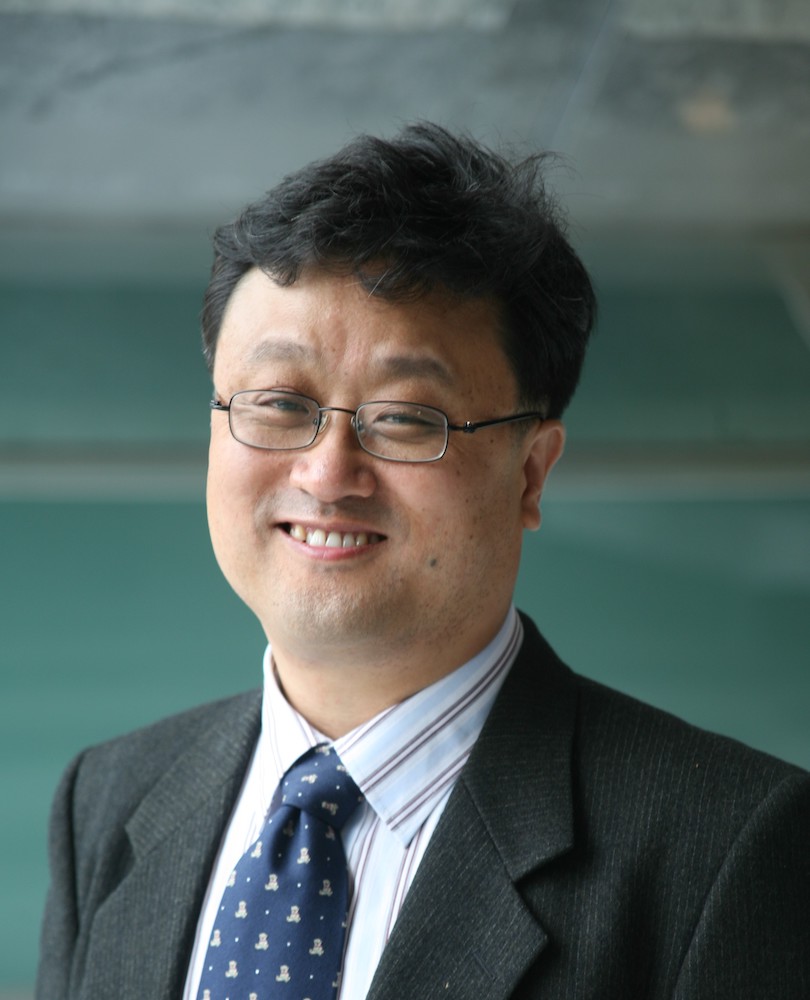Keynote 1
Important Challenges and Opportunities for Natural Language Processing
Maosong Sun (Tsinghua University)

Keynote 2
Data-Centric University 4.0
Hong-Gee Kim (Seoul National University)

Bio:
Prof. Hong-gee Kim is the CIO of Seoul National University. He is also the Chair of KREN (the Korean Education Network) representing 400 higher education institutes in Korea. He has a professorship at Seoul National University as the head of Dental Management & Informatics department. He also has joint appointments at Computer Engineering Dept, Cognitive Science Dept, and Archival Studies Dept of Seoul National University. Overseas, he was an adjunct professor in Information and Engineering School, the National University of Ireland, Galway. During his 2 sabbatical leaves, he visited Harvard University Medical School and Helsinki University Medical School respectively.
Hong-Gee Kim has authored over 300 research papers and 7 books that cover diverse topics in computer engineering, clinical medicine & dentistry, bioinformatics, cognitive science, law, and industrial engineering. His current research interests include data-centric biology & medicine, semantic technologies for large scale biomedical data integration, deep data analysis with various machine learning technologies for cancer and epigenetic informatics. One of his main research topics is to develop AI-based software tools for drug discovery in the context of precision medicine. For this his lab makes efforts to integrate diverse biological data with large-scale disease networks using knowledge graphs. In addition to research interests, Hong-Gee Kim is deeply involved in digital transformation in Korean higher education systems. Recently, he organized and launched a consortium, named Big Data COSS (Convergence Open Sharing System) with 7 universities to build an innovative open university system to facilitate data-centric disciplines in all subjects.
Abstract:
With COVID-19 spreading around the world, many countries have used and developed various medium, digital solutions and information infrastructure for distance education. The dramatic change caused by the pandemic speeded up adopting new technologies in higher education and revolutionizing university systems. The University 4.0 paradigm, which is inspired by Industry 4.0, comes up with more effective responses to the demand for improvement, optimization, and personalization of large-scale data-centric and technology-supported education. In this talk, I will explore how the data-centric approach to University 4.0 changes the structure and processes of university systems from several different aspects. Firstly, we can reconceptualize University as a Platform and Education as a Service. A data-centric learning commons platform and MOOCs will be more popularly used for higher education. Secondly, University 4.0 means the shift towards more student-centric universities that can provide competency-based educational services. Precision education that can be adapted to learner’s capability would require various computational tools to effectively manage and analyze a large amount of learner’s information. Thirdly, University 4.0 facilitates globalized open innovation for collaborative research. Open data platforms across many fields and AI tools are changing the landscape of scientific research where there is no boundary between universities and between academia and industry.
One of the most important features of the data-centric University 4.0 is that the educational achievement criteria shift from how much a learner has spent time in the classroom (Time-based Education) to how much a learner has actually acquired the targeting ability (Competency Based Education, CBE). For efficient CBE, it is required to systematically manage a large amount of learner’s information related to classroom activities, background knowledge, future goals, etc. One of the most notable data frameworks for CBE is a knowledge graph (or linked data) model that can manage the learner’s competency by linking information such as student’s capabilities, educational resources, learning targets, and referential meta-information. In this talk I will present some recent technologies of knowledge graphs that propose to link various datasets regarding structured competency data, classroom activities, course syllabus, and educational resources within a university or cross multi universities. I will also briefly introduce a recent linked data model to store and manage student’s personal information without worrying about the invasion of privacy.
Keynote 3
Inference in Open-Domain Question-Answering
Mark Steedman (The University of Edinburgh)

Bio:
Mark Steedman is Professor of Cognitive Science in the School of Informatics at the University of Edinburgh, to which he moved in 1998 from the University of Pennsylvania, where he taught for many years as Professor in the Department of Computer and Information Science. He is a Fellow of the British Academy, the Royal Society of Edinburgh, the American Association for Artificial Intelligence (AAAI), the Association for Computational Linguistics (ACL), and the Cognitive Science Society (CSS), and a Member of the European Academy. In 2018, he was the recipient of the ACL Lifetime Achievement Award.
His research covers a wide range of problems in computational linguistics, natural language processing, artificial intelligence, and cognitive science, including syntactic and semantic theory, and parsing and interpretation of natural language text and discourse, including spoken intonation, by humans and by machine. Much of his current research uses Combinatory Categorial Grammar (CCG) as a formalism to address problems in wide-coverage parsing for robust semantic interpretation and natural language inference, and the problem of inducing and generalizing semantic parsers, both from data and in child language acquisition. Some of his research concerns the analysis of music using related grammars and statistical parsing models.
Abstract:
Open-domain question-answering from text corpora like Wikipedia and the Common Crawl generally requires inference. Perhaps the question is “Who owns Twitter?”, but the text only talks about people buying (or not buying) that company. To answer the question, we need a structure of “meaning postulates” that includes one that says buying entails ownership. Such structures are commonly (though inaccurately) referred to as “entailment graphs (EG).” They are inherently directional: the fact Twitter Inc, owns Twitter does not answer the question “Who bought Twitter?”.
Two approaches are currently being pursued. One approach is to hope that large large models (LM) can be fine-tuned for use as “latent” entailment graphs. I’ll argue following work by Javad Hosseini, Sabine Weber, and Tianyi Li that we see no evidence so far that LMs can learn directional entailment (as opposed to bidirectional similarity).
An alternative approach uses machine-reading with parsers over multiply-sourced text to extract a Knowledge Graph (KG) of relational triples representing events or relations that hold between typed entities, including buying and owning relations. We then build a (different) Entailment Graph (EG) on the basis of distributional inclusion between the triples. Such entailment graphs gain in precision, because they are inherently directional. They are scalable, and can be built for any language for which a reliable parser and named-entity linker is available. However, they are inherently sparse, because of the Zipfian Distribution of Everything in NLP.
I’ll discuss some recent work by Nick McKenna and the group investigating the theory of smoothing EGs using LMs, and use of WordNet/BabelNet to investigate further distributional asymmetries.
